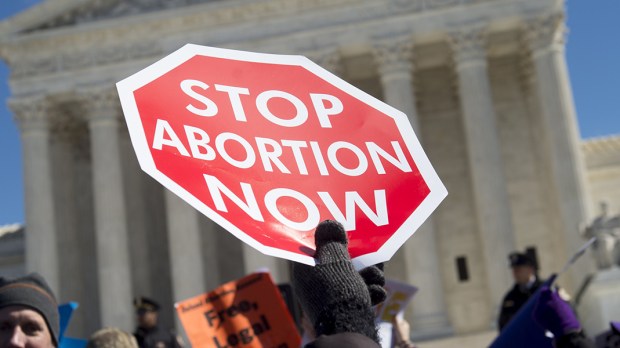Lenten Campaign 2025
This content is free of charge, as are all our articles.
Support us with a donation that is tax-deductible and enable us to continue to reach millions of readers.
A flurry of recent state legislation on abortion is prompting court challenges and inspiring debate about the best way to protect innocent unborn human life.
Several states, including Georgia, Mississippi and Ohio, have passed laws this year prohibiting abortion anytime after a heartbeat is detected from a child in the womb. Legislators in South Carolina and Tennessee considered comparable bills, which effectively ban abortion after about six weeks gestation.
Georgia Gov. Brian Kemp signed a heartbeat bill on May 7. The bill is expected to become law in 2020, if it is not blocked by a court challenge.
Mississippi’s heartbeat law is scheduled to go into effect July 1, but is being challenged in court.
In Alabama, however, legislators wanted to raise the bar even higher, introducing a bill that would prohibit abortion once a fetus is “in utero.” An abortion after that point would be a felony, and a doctor performing the abortion could face a sentence of up to 99 years in prison.
The version of the bill that passed in the House allowed for a single exception—in cases involving a serious health risk “to the unborn child’s mother,” according to the Washington Post. Cases of rape and incest were not exempt.
But last week senators postponed voting on the bill.
On Friday, a federal judge struck down a 2018 Kentucky statute that would have banned second-trimester dilation and evacuation abortions. Gov. Matt Bevin promised an appeal.
In Texas, meanwhile, a heartbeat bill did not make it out of a House committee last week, and the state’s legislative session ends in a couple of weeks. The Texas Tribune quoted several pro-life activists as saying it would be better to take more incremental approaches anyway. The news outlet said some pro-lifers fear a radical approach like a heartbeat bill could “backfire and justices could uphold women’s rights to the procedure.”
“We see the bigger-picture strategy,” said John Seago, legislative director for Texas Right to Life. “There is no shortcut. This is the only way.” Said the Tribune:
Texas Right to Life … focused on backing Senate Bill 1033, which the Senate passed earlier this week. That bill would eliminate certain exemptions to a state law that prohibits abortions after 20 weeks of pregnancy, such as when the pregnancy is not viable or the fetus has “severe and irreversible” abnormalities. It would also prohibit abortions on the basis of the sex, race or disability of a fetus, and criminalize doctors who perform what opponents call “discriminatory abortions.”
Seago believes the Supreme Court would take up an abortion case over SB 1033 because it would fit a key criterion, the Tribune explained: It presents a unique legal question that would have far-reaching implications throughout the nation.
The flurry of activity comes as lawmakers in some states have been working to protect legal abortion. Vermont’s state legislature passed Proposal 5 to amend the state constitution to guarantee the right to an abortion, CNN reported last week. But before it can become law, the state legislature would need to pass the bill again and voters would need to approve it in a 2022 referendum.
In January, Gov. Andrew M. Cuomo of New York signed a measure that guaranteed a “fundamental right” to abortion in the state.

